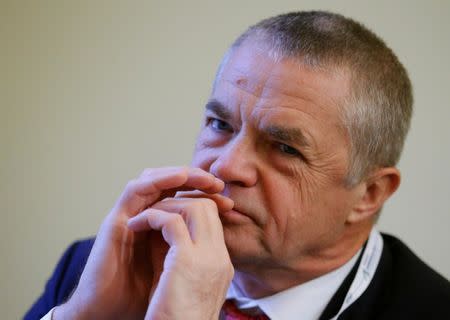EU gets wake-up call as Gazprom eyes rival TAP pipeline

By Alissa de Carbonnel and Oleg Vukmanovic BRUSSELS/MILAN (Reuters) - Gazprom's bid to tap into a pipeline meant to wean Europe off Russian gas threatens to undermine a pillar of European energy policy and slow plans to develop rival deposits in the east Mediterranean. As the European Union struggles against the "iron embrace"of Russian pipelines, it has made opening a new Southern GasCorridor to carry gas from Azerbaijan by 2020 a priority. The 10 billion cubic metre (bcm)-capacity Trans AdriaticPipeline (TAP) is the project's end piece, joining up with theTrans Anatolian Pipeline at the Turkish border, then crossingGreece and Albania to reach Italy. Construction work on TAP gives EU officials the firstnon-Russian gas pipeline to supply Europe since Algeria'sMedgaz link nearly a decade ago, paving the way fordiluting Gazprom's large one-third share of Europe's gas market. That at least was the plan, until Gazprom's deputy headAlexander Medvedev last month said the company was consideringpumping gas through the link under an auction system giving equal access to any would-be supplier. Medvedev questioned Azerbaijan's ability to fill thepipeline, saying Russia could step in to plug any shortfallsonce the link is expanded. "It won't lie empty," he said. "That would be very bad," one EU official said. "It would betotally contrary to everything we have agreed with partners." The EU worries Gazprom has abused its dominant position to overcharge central and eastern European states, some of which are nearly wholly reliant on Russian gas. It foiled Russia's South Stream project to pump gas to south-eastern Europe under the Black Sea by insiting on anti-trust rules banning suppliers from owning pipelines, without giving other vendors access. Taken together with separate Russian plans to double itsNord Stream pipeline to Germany, EU nations must fend off "thisiron embrace from the North and from the South," another EUofficial said. While the first phase of TAP's capacity will be filled bythe BP-led consortium developing Azerbaijan's Shah Deniz IIgasfield, TAP says any gas supplier can bid for another 10 bcmof capacity through so-called Open Season auctions. Some of TAP's shareholders - including Italy's Snam andBelgium's Fluxys - said they would welcome Gazprom's entry, andEU sources admitted there may be little they can do to keepGazprom from bidding when the pipeline is expanded after 2020. "We see the Southern Gas Corridor foremost as a major sourceof diversification: new gas, new route, new supplier," EuropeanCommission Vice President Maros Sefcovic told Reuters. EU sources said Russian gas flows via TAP may jar with the terms set by its financial backers, such as the European Investment Bank. The bank said it is carrying out due diligence. At most, officials say they could extend an exemption fromEU anti-trust rules to TAP in order to keep Gazprom out, butBrussels would require the firms and governments concerned toinitiate the move. Intervening may also run counter to the bloc's goals ofpromoting an unregulated gas market. And it risks triggering abacklash from Moscow, whose plan to join TAP still hinges uponthe construction and expansion of a major gas link to Turkey. 'CLEVER STRATEGY' By accessing TAP, Gazprom is seeking to defend market shareby flooding Europe with cheaper piped gas than would-be challengers, including from the east Mediterranean and NorthAfrica, industry sources say. "The hub around Israel, Cyprus, Egypt could compete, but ifRussia can saturate the TAP, it won't be easy," a senior Italianindustry source said. Last year Gazprom pursued another pipeline scheme – theInterconnector Turkey Greece Italy (ITGI) Poseidon, first backedby the EU as an alternative to Russian imports - for its ownuse. "In the geopolitical game around Turkey and the EU, Russiais trying to keep all its options open," said Kirsten Westphalof the SWP Foundation in Berlin. "That is clever ... because itmakes it hard for others to take decisions on projects." Regional instability has already chipped away at the bloc's grand plan of pooling gas from Azerbaijan, Kurdistan, Iraq and Iran into a huge 100 bcm/year delivery system. While BP says additional volumes from Shah Deniz II could bepumped into an expanded TAP, analysts are sceptical as domesticgas demand soars and oldfields fail. But Azerbaijan's state firm SOCAR, whose gas is contractedfor TAP, dismissed concerns Shah Deniz could run dry. "Gazprom is not SOCAR's rival in TAP," a source at SOCAR told Reuters, saying half of the pipeline capacity would be reserved for Azeri gas. (Additional reporting by Vera Eckert in Frankfurt, Stephen Jewkes in Milan and Nailia Bagirova in Baku, editing by David Evans)

